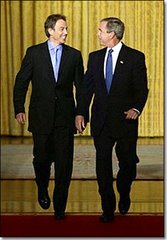 Pollution and haze in Bangkok seen from a an aerial view during rush hour on February 2, 2007 in Bangkok, Thailand. A report by the Intergovernmental Panel on Climate Change (IPCC) has stated that climate changes are "very likely" to have human cause and that global temperatures will rise by 3 degrees Celsius by 2100.
Pollution and haze in Bangkok seen from a an aerial view during rush hour on February 2, 2007 in Bangkok, Thailand. A report by the Intergovernmental Panel on Climate Change (IPCC) has stated that climate changes are "very likely" to have human cause and that global temperatures will rise by 3 degrees Celsius by 2100.Photograph by : Getty Images
OTTAWA — The Conservative government says the scientific community’s "unequivocal" warning about climate change in a new report released in Paris on Friday is a turning point in history that it is taking "very seriously."
"I think the science is clear that these changes are occurring … and we must act," said Prime Minister Stephen Harper at an Ottawa news conference. "We are working through the Kyoto process to try and get international action to try and get action that will involve all of the world’s major emitters, and as you know, currently, most of the major emitters are not part of the protocol, or at least have no targets under the protocol. So these are efforts that are important that we will continue to work on."
The comments contrasted with statements Harper made as opposition leader in recent years when he questioned the scientific evidence, and described Kyoto as a "socialist scheme" to drain money from developed nations.
But Environment Minister John Baird said the government understands the message from the report, which was produced by the Intergovernmental Panel on Climate Change.
"We recognize that the report is an important scientific study on climate change and we take its findings very seriously," Baird said at a news conference in Paris after being briefed by experts from Environment Canada and other international officials.
Hundreds of climate scientists delivered their findings on Friday morning after reviewing the work of more than 2,000 researchers — including skeptics.
They predicted global temperatures will rise faster in the 21st century than in the previous 100 years, with stronger increases for countries in northern regions such as Canada. They also concluded some aspects of global warming would continue for centuries, regardless of any mitigation efforts.
"Warming of the climate system is unequivocal, as is now evident from observations of increases in global average air and ocean temperatures, widespread melting of snow and ice, and rising mean sea level," reads the summary report released by the Intergovernmental Panel on Climate Change, a peer-review panel representing scientists from nations around the world.
The report is the first volume of its fourth assessment of the latest scientific literature since the 1990s, and its strongest ever warning that human activity is responsible for global warming.
Baird promised his government would soon introduce regulations and targets for industry, but he refused to commit to meeting Canada’s legally binding targets to reduce greenhouse gas pollution as required under the international Kyoto Protocol. He said the government wanted to focus on what it could do, instead of what was not possible to achieve.
"The fourth report of the Intergovernmental Panel on Climate Change will constitute a turning point in the battle against climate change for the world," he said. "Therefore we must accept what the experts say. We must devote our energy to find solutions that would protect the fragile ecosystems of our planet, and we must adopt concrete measures to fight against climate change. And when I say ‘we,’ I mean Canada and all countries. Climate change is a global issue that requires a planetary solution."
Although the scientists concluded there was a 66 per cent probability humans were responsible for global warming in the last IPCC report from 2001, they now say the latest research tells them there is a 90 per cent probability that human activity, mainly through the burning of fossil fuels, are producing the greenhouse gases that cause the climate to change.
"The global concentrations of carbon dioxide, methane and nitrous oxide, all greenhouse gases those are, have increased markedly since 1750, and they are now far, far above the values seen in ice cores in many, many thousands of years," said Susan Solomon, a U.S. climate scientist and lead author of the study, at a news conference. "The increases in carbon dioxide are mainly due to fossil fuel use and land-use, while those of methane and nitrous oxide are due to agriculture.
The findings come as Harper’s government faces widespread criticism from environmentalists and opposition parties for turning his back on Canada's international commitments to reduce greenhouse gases by slashing billions of dollars in climate change initiatives.
Under the Kyoto Protocol, the former Liberal government committed Canada to reduce greenhouse gas emissions by six per cent below 1990 levels, although when they left office, the country was about 35 per cent above its target.
The report predicted a 0.2 C average global temperature increase per decade over the next 20 years, and a 0.1 C increase for subsequent decades. An increase in hotter days and a decrease in colder days is virtually certain, according to the report. It also concludes there would be an increased probability of more frequent droughts in some regions, and heavy precipitation or extreme weather events in others.
But the scientists refrained from lecturing world leaders to take action.
"I believe that is a societal choice," said Solomon. "I believe science is one input to that choice, and I also believe science can best serve society by refraining from going beyond its expertise, so I do not feel that it would be in the best interest of society making this decision in the most responsible way for me to push for urgency or action. There are people out there who have that role. But it isn’t me, and in my view, that’s what IPCC also is all about: Namely not trying to make policy prescriptive statements, but
Posted by CanWest News Service
Published by
Mike De Souza, CanWest News ServicePublished: Friday, February 02, 2007













No comments:
Post a Comment